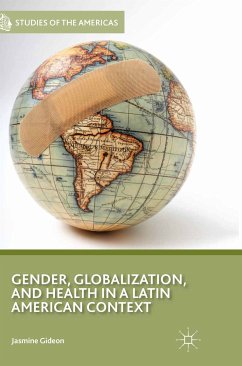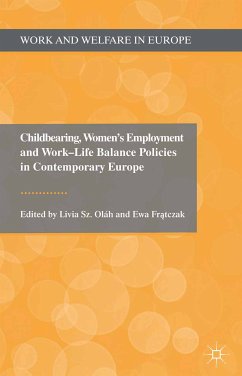Dieser Download kann aus rechtlichen Gründen nur mit Rechnungsadresse in A, B, BG, CY, CZ, D, DK, EW, E, FIN, F, GR, HR, H, IRL, I, LT, L, LR, M, NL, PL, P, R, S, SLO, SK ausgeliefert werden.
'Jasmine Gideon has filled a much needed gap in understanding the links between globalization and gender relations. Her unique political economy framework demonstrates how important reforms in the health sector in Chile have been constructed on the basis of historic male bias, and contemporary deregulation and marketization of key social services. The book holds important lessons for the rest of Latin America, making it a must-read text for all scholars interested in understanding the dynamics of economic restructuring in a post-welfare world.'
Ruth Pearson, University of Leeds, UK
'This book is necessary reading for anyone concerned with gender and social policy. Combining case study research in Chile with a wide-ranging review of health and social policy changes across Latin American , Gideon demonstrates unequivocally that gendered legacies in health sectors have combined with newer processes of economic liberalization and commercialization of health to perpetuate, and at times exacerbate, gender inequalities.'
Christina Ewig, University of Wisconsin, Madison, USA
'This nuanced study effectively combines over-arching analysis with considerable empirical depth. Jasmine Gideon successfully uses a gendered political economy of health approach to give us new insights into the important debates about gender, globalization and health.'
Georgina Waylen, University of Manchester, UK









